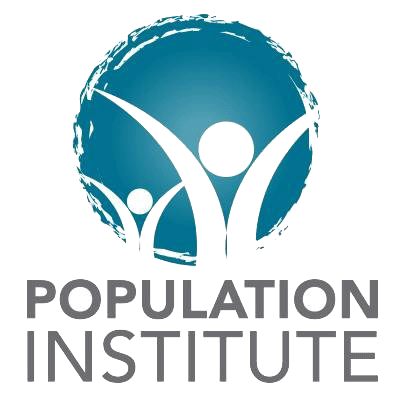A 50-state Report Card
Overview
rePROs Fight Back, an initiative of the Population Institute, has published their annual 50-State Report Card on Sexual and Reproductive Health and Rights since 2012. Since 2022 when the U.S. Supreme Court overturned Roe v. Wade ending constitutional protection of the right to abortion, Americans have dealt with a sexual and reproductive health landscape that is a complex puzzle, featuring fractured sex education, gender-affirming care, and family planning and abortion services. Over the report card’s history, the U.S. overall grade has dropped from a C- in 2012 to an F and the number of failing states has skyrocketed. The data in this report card are from 2023 and the report card was published in March 2024.
Reports by State
Methodology
Using 11 criteria, the 50-State Report Card ranks each of the 50 states and the District of Columbia on three broad indicators relating to reproductive health and rights: prevention, affordability, and access to services.
The criteria include elements of reproductive health such as: sex education, minors’ access to birth control, access to emergency contraception in the emergency room, Medicaid expansion—including family planning expansion—abortion policy, and more. The 11 criteria are detailed below:
PREVENTION (30 points)
Sex Education (20 points)
- Sex education is mandated (must include contraception) = 6 points
- HIV education is mandated (must include condoms) = 5 points
- Mandated medically accurate = 5 points
- Teaches healthy relationships = 1 point
- Teaches sexual and dating violence prevention = 1 point
- LGBTQ+ inclusive = 1 point
- Teaches consent = 1 point
Access to Emergency Contraception (5 points)
- Mandates hospitals tell victims about emergency contraception = 2.5 points
- Mandates hospitals dispense emergency contraception = 2.5 points
Minors’ Access to Contraception (5 points)
- Mandates all minors can consent to contraception = 5 points
- Allows physicians to tell minors’ parents = minus 2.5 points
AFFORDABILITY (35 points)
Medicaid Expansion (15 points)
- State has expanded its Medicaid program, which includes maternal and reproductive health care, under the Affordable Care Act = 15 points
Medicaid Family Planning Expansions (10 points)
- Medicaid expansions to cover family planning services for people who otherwise do not qualify for Medicaid must be at least above the amount that would be covered 138% if the state expanded Medicaid under the Affordable Care Act = 10 points
Medicaid Maternal Health Expansion (5 points)
- State expanded its Medicaid postpartum coverage to 12 months = 5 points
Insurance Coverage of Abortion (5 points)
- State doesn’t restrict abortion coverage in private insurance plans = 5 points
ACCESS (35 points)
Abortion Restrictions (15 points)
- Gestational ban = minus 5 points
- Waiting period = minus 5 points
- Mandates inaccurate counseling = minus 1 point
- Mandates an ultrasound = minus 1 point
- Mandates parental consent or notice = minus 3 points
TRAP Laws (5 points)
- State has not enacted TRAP Laws, which are targeted regulation of abortion providers beyond what is necessary to ensure patient safety = 5 points
Medication Abortion (5 points)
- Mandates those providing medication abortion be a licensed physician = minus 2.5 points
- Mandates mediation abortion be provided in person = minus 2.5 points
NOTE: States that have a total abortion ban or a 6-week ban receive 0 points across all abortion related categories (restrictions, TRAP laws, and medication abortion) because if abortion is completely or mostly banned it doesn’t matter what those other laws are if abortion is inaccessible.
Gender-Affirming Care Restrictions (10 points)
- State does not ban the best practice medical care for transgender youth = 10 points
Based on their composite scores between 0-100, each state receives a core grade of A-F and are based on the following:
- A: 86-100 points
- B: 71-85.9 points
- C: 61-70.9 points
- D: 50-60.9 points
- F: < 49.9 points
If there are noteworthy developments or other important policies that are not reflected in the state’s core grade, a state may be accorded a plus (+) or a minus (-), depending on how the changes are likely to impact reproductive health and rights.
FOR MORE INFORMATION
- About sex education requirements at the state level, see https://www.guttmacher.org/state-policy/explore/sex-and-hiv-education
- About state Medicaid expansions, see http://kff.org/health-reform/state-indicator/state-activity-around-expanding-medicaid-under-the-affordable-care-act/
- About state Medicaid family planning waivers, see https://www.guttmacher.org/state-policy/explore/medicaid-family-planning-eligibility-expansions
- About state Medicaid postpartum coverage, see https://www.kff.org/medicaid/issue-brief/medicaid-postpartum-coverage-extension-tracker/
- About state abortion restrictions, see https://www.guttmacher.org/state-policy/explore/overview-abortion-laws
- About gender-affirming care bans, see https://www.lgbtmap.org/equality-maps/healthcare/youth_medical_care_bans
NOTE ON LANGUAGE
rePROs Fight Back (rePROs) intentionally uses the term “women” when describing data that did not include nonbinary people or transgender men in the research. Otherwise, rePROs is committed to using gender-inclusive language to represent all individuals who deserve full access to sexual and reproductive health services.
SOURCES / ACKNOWLEDGMENTS
We wish to express our deep appreciation to the Guttmacher Institute, the Kaiser Family Foundation, Movement Advancement Project, and other organizations working in this field for the research and reporting that made this report card possible.

 rePROs Fight Back is a project of the
rePROs Fight Back is a project of the